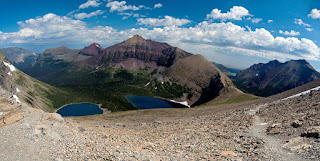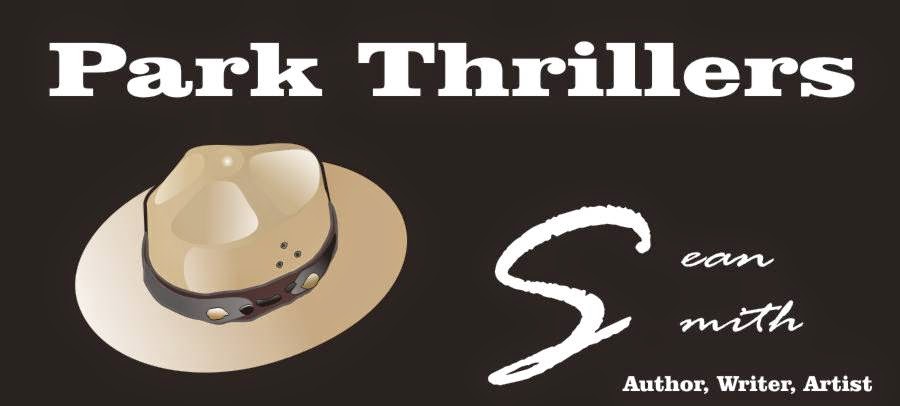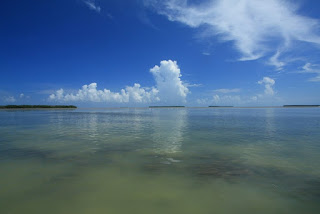This project got me thinking about the most remote places I’ve visited. Here’s my list of remote places.
Mission Mountains 2.93 miles Lucifer Lake
Grand Canyon 4.3 miles Phantom Ranch
Everglades 4.9 miles Whitewater Bay
Yellowstone 6.3 miles Heart Lake

Glacier 6.7 miles Dawson/Pitamakan Pass

Lake Clark 53 miles Tuxedni Bay
While compiling my list, a couple things struck me.
First, even though I’ve hiked thousands of miles, and consciously tried to get into the wilderness, I’ve never really been than far from civilization. Outside of Alaska, I’ve only been on average 5 miles or less from a road. That’s never more than a two hour hike back to civilization.
Second, even deep into wilderness parks like Glacier or Yellowstone, indications of civilization were always present. At Yellowstone for example the contrails of transcontinental flights seemed always overhead. Meanwhile, at the Mission Mountains the lights of St. Ignatius could be seen in the distance. At the bottom of the Grand Canyon, park tourists who didn't feel safe venturing more than a few feet from their cars were ever present peering over the gorge's edge. Even in Lake Clark, more than 50 miles from the nearest road, we were never more than a stones throw from the airplane, the hikers camp, and the bear viewing platform.
For me being truly remote means being vulnerable, being separated from easy rescue. I felt most vulnerable and probably most remote in the Everglades backcountry. My brother and I took a small boat deep into the Everglades wilderness. If a storm had come up or the boat failed, we would have been stranded with no easy way to walk out. This trip was back in early 90's, long before the cell phones, meaning their was no easy way to call for help. This vulnerability made me realize how interconnected and reliant we are on each other for our survival.
Finally, pulling together my list made me realize that despite the fact that wilderness and backcountry acreage has grown, the opportunity to be truly remote has shrunk. This loss of remoteness means feeling truly vulnerable or exposed is diminished, lost. And in the end, the irony is a loss of remoteness means our ability to understand our true dependence on our fellow humans is also lost.
####
Sean Smith is an award winning conservationist and author. He is a former National Park Ranger at Yellowstone, Glacier, and the North Cascades. He is a TEDx speaker, and private pilot. He graduated from the University of Washington in 1989 with a degree in Political Science. He got his master's in Natural Resources Management from Central Washington University in 1996. He currently runs Washington State's efforts to reduce and eliminate toxic chemicals from consumer products and serves as the Mayor Pro Tem of Covington.
He has been writing stories and books since he was a child and currently writes national park thrillers from the shadow of Mount Rainier.
He has been writing stories and books since he was a child and currently writes national park thrillers from the shadow of Mount Rainier.
All his novels can be found here: Mr. Sean D Smith



